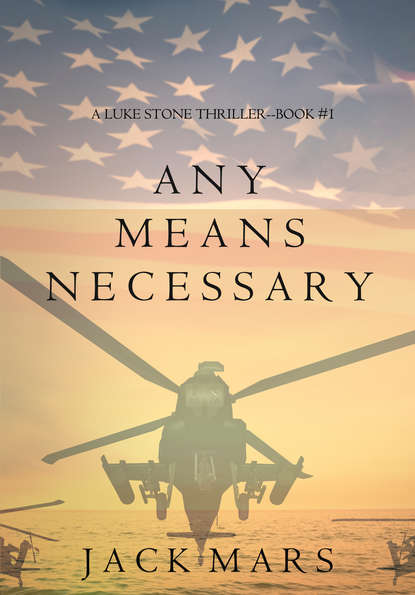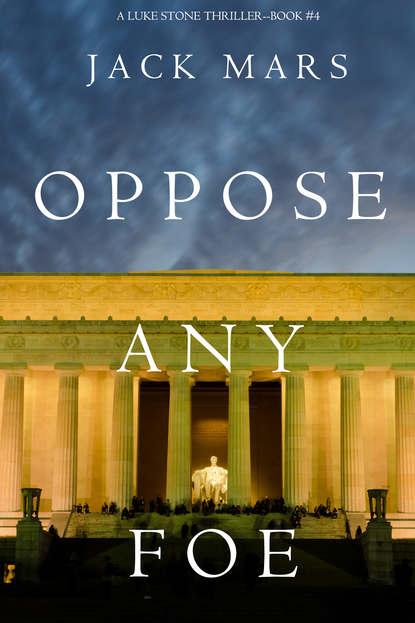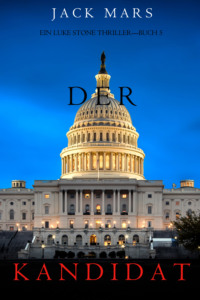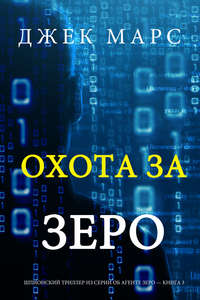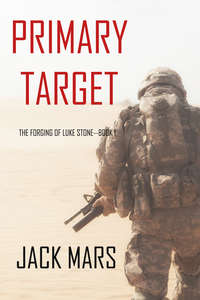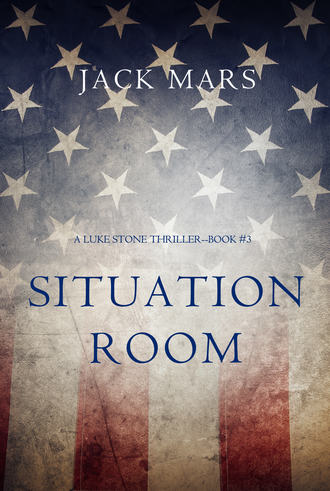
Полная версия
Situation Room
Susan nodded. “I know that.” And she did know it. That little fact had come up again and again in her meetings. Michael Parowski has your back.
“You need to know something about me, though,” he said. “I’m big. Physically I’m big, and I have a big personality. If you’re looking for someone to stand in the back and fade into the wallpaper, then I’m probably not your guy.”
“Michael, we vetted you eight ways to Sunday. We know everything about you. We don’t want you to stand in the background. We want you upfront, being yourself. We want your strength. We’re rebuilding a government here, and in a sense, we’re rebuilding people’s faith in America. It’s hard work, and it’s a lot of heavy lifting. That’s why we picked you.”
He gave her a sidelong look. “You know everything about me, huh?”
She smiled. “Well, almost everything. There’s still one mystery I’d like to solve.”
“Okay, I’ll bite,” he said. “What is it?”
“When you pull the old ladies aside at events, what do you whisper to them?”
He grunted. A funny look came into his face. It nearly transformed, decades of wear and tear dropping from it. For a few seconds, he looked almost (but not quite) innocent, like the hardscrabble child he must once have been.
“I tell them how beautiful they look today,” he said. “Then I say, ‘Don’t tell nobody. It’s our little secret.’ And I mean it, every word of it.”
He shook his head, and Susan thought it was almost with wonder – at people, at politics, at the sheer magnitude and audacity of what people like he and Susan did every single day of their lives.
“It works every time,” he said.
CHAPTER SEVEN
11:45 a.m.
Atlanta, Georgia
“Is Mr. Li okay? I haven’t seen him here in quite a while.”
The man was small and thin, with a narrow and hunched back. He wore a gray uniform with the name Sal stitched over one breast. He kept a cigarette lit and in his mouth at all times. He talked with it in his mouth. He never seemed to see any need to take it out until it was finished. Then he lit another one. In one hand, he carried a heavy pair of bolt cutters.
“Oh, he’s fine,” Luke said.
They walked down a long, wide cinderblock corridor. It was lit by sputtering overhead fluorescents. As they walked, a small rat darted in front of them, then scurried along the bottom corner of the wall. Sal didn’t seem to feel the rat was worth commenting on, so Luke kept his mouth shut. He glanced at Ed. Ed smiled and said nothing. Trailing behind them, Swann coughed.
Li’s space was in a large old warehouse building which had been subdivided over the years into many smaller spaces. Dozens of tiny companies rented spaces here. There was a loading dock at the far end of the corridor, and the corridor itself was perfect for loading up dollies and rolling product in and out.
Sal seemed to work as some kind of manager or custodian of the place. He had initially been hesitant to cooperate. But when Ed showed him his FBI identification, and Swann showed him his new NSA badge, Sal became eager to please. Luke didn’t show his badge. It was his old Special Response Team ID, and the SRT didn’t exist anymore.
“What kind of trouble might he be in?” Sal said.
Luke shrugged. “Nothing too major. Tax trouble, trouble with trademark and patent infringements. About what you’d expect from a guy bringing stuff in from China. You must see it all the time, am I right? I was in Chongking a few years ago. You can go into the warehouses along the waterfront there and buy new iPhones for fifty bucks, and Breitling watches for a hundred and fifty. They’re not real, of course. But you wouldn’t know the difference to look at them.”
Sal nodded. “You wouldn’t believe the stuff I see come in and out of here.” He stopped in front of a corrugated steel door, the kind that slides up from the bottom. “Anyway, Li seems like a very nice man. He doesn’t speak much English, but I’d say he gets by on what little he has. And he’s very polite. Always bowing and smiling. Not sure how much business he does, though.”
The metal door had a clasp with a heavy lock. Sal lifted the bolt cutter and with one quick snap, chopped the lock right off.
“You’re in,” he said. “I hope you find what you’re looking for.”
He was already moving down the hall toward his office.
“Thanks for your help,” Ed called to his back.
Sal raised one hand. “I’m an American.” He didn’t turn around.
Ed bent over and pulled up the door. They observed what was visible before going in. Ed stuck his hand inside and slowly waved it side to side, up and down, looking for trip wires.
It wasn’t necessary. Li’s warehouse was unprotected by booby traps. More than that, it seemed long abandoned. When Luke flipped the switch, half the overhead lights didn’t work. Plastic-wrapped pallets of cheap toys were stacked in rows in the gloom, and covered with green tarps. Boxes of generic, no-name household cleaning products, the kind that would turn up in dollar stores and odd lot outlets, were piled in one corner, nearly to the ceiling. Everything was blanketed in a thin film of dust. The stuff had been sitting here for a while.
Li seemed to have imported a shipment of junk to keep up appearances, then never bothered with it again.
“The office is over there,” Swann said.
In the far corner of the warehouse was the door to the small office. The door was wood, with a frosted glass window for the top panel. Luke tried the knob. Locked. He glanced at Ed and Swann.
“Either of you guys have a pick on you? Otherwise, we have to go back down there and explain to Sal about how organized crime has cornered the market on year-old discount store crap.”
Ed shrugged and took his keys out of the pocket of his jeans. The key ring had a small black flashlight on it. Ed held the flashlight like the world’s smallest night stick, and smacked it against the window, smashing the glass in. He reached through the hole and unlocked the door from the inside. He held up the flashlight for Luke’s inspection.
“It’s like a pick, only more direct.”
They went in. The office was bleak, but tidy. There was no window. There was a three-drawer filing cabinet, which was mostly empty. The bottom drawers each had a few folders with shipping manifests and receipts. The top drawer had a few power bars and small bags of pretzels and potato chips, plus a couple bottles of spring water.
There was a long wooden desk, with an old desktop computer on it. On one side of the desk were the kind of deep drawers where people often kept files on hangars. These drawers were locked.
“Ed?” Luke said.
Ed walked over, grabbed the handle of the top drawer, and wrenched it open with brute force – to the naked eye, it looked like a parlor trick, one deft snap of the wrist breaking the lock. Luke knew better. Then Ed proceeded to open each drawer in turn using the exact same technique.
“Like a pick,” he said.
Luke nodded. “Yes, but more direct.”
There was nothing much in the drawers. Pencils, pens, faded pieces of stationery. An unopened pack of Wrigley chewing gum. An old Texas Instruments calculator. In one of the drawers, on the bottom, were three CD-ROMs in dirty plastic cases. The cases were marked with letters A, B, and C, written in magic marker on scraps of masking tape. The case with the letter B on it was cracked.
Swann sat down to the computer and booted it up. “Pretty low-tech,” he said. “This thing is probably twenty years old. I’ll bet it’s not even hooked to the internet. Sure. Look at this. It’s from a time before cable hookups, and from way before wireless. There’s nowhere to plug in a Cat 5 cable. You want an internet connection on this thing? Anybody here remember dial-up?”
To Luke, it didn’t make sense.
“Why would an advance man from a country known for sophisticated hacking have a computer that isn’t even on the internet, and almost couldn’t be on it, even if he wanted it to be?”
Swann shrugged. “I have a couple guesses.”
“Do you care to share them?”
“The first is that he’s not Chinese at all. He’s not part of any sophisticated anything. The hack that took the dam out wasn’t particularly advanced. That dam’s system was ripe for the plucking. He may be part of a group with no government backing.”
“If he’s not Chinese, then what is he?” Luke said.
Swann shrugged. “He could be American. He could be Canadian. He has high cheekbones and flat facial features, which could mean he’s Thai. He’s a big guy, which could mean northern Chinese. He could be an American of Asian descent. I didn’t get anything from being in that room with him that indicated any nationality. But I wouldn’t peg him as Chinese just because he has a Chinese passport.”
“Okay, what’s your second guess?” Luke said.
“My second guess is they went low tech so no prying eyes can see what they’re doing. You can’t hack into something that isn’t connected. If Li is not on the internet, no one can read his files. The only way to access them is to come here to this godforsaken warehouse in a crummy industrial district on the outskirts of Atlanta. The only way to find out this warehouse even exists is to torture Li, or in your case, threaten to torture him. And that’s something which never should have happened in the first place, because Li was supposed to kill himself before he was caught. The people who were supposed to find this computer were Li’s handlers, or in a worst-case scenario, Sal would find it when the rent money ran out. Then he would either toss this old computer in the trash, or sell it for ten bucks.”
The computer screen came on and asked for a login code.
Swann gestured at the screen. “And that, right there, would have been enough to stop Sal in his tracks.”
“Can you beat it?” Ed said.
Swann almost smiled. “Are you kidding? These circa 1994 encryptions are a joke. I was breaking these things when I was thirteen years old.”
He typed in a command, and an old black MS-DOS screen appeared in the top left corner. He typed in a few more commands, hesitated for a moment, typed in a few more, and Windows returned, no longer asking for a password.
When the desktop loaded, Swann clicked around for a few moments. It didn’t take long. “There are no files on here,” he said. “No word processing documents, no spreadsheets, no photographs, nothing.”
He glanced at Luke over his shoulder.
“This computer’s been wiped clean. The hard drive is still here, and it functions, but there’s no evidence of anything. I think our friend Mr. Li might have pulled a fast one.”
“Can you get the files back that were deleted?” Luke said.
Swann shrugged. “Maybe, but I can’t do it here. Could be there were never any files to begin with. We’ll have to remove the hard drive and bring it back with us to NSA to know for sure.”
Luke sagged the slightest amount. Generally, he had a lot of confidence in his ability to read people. But maybe Swann was right. Maybe Li had pulled a fast one. His terror seemed real enough, but maybe he had faked it. Why would he do that? He had to know that Luke was coming right back for him. There was nowhere to run.
“What about the CDs?” he said. “Let’s check those.”
Swann picked up the first one, marked A. He held it between two fingers as if it had something contagious on it. “Sure, why not?”
He slid the CD into its slot. The computer suddenly began to rev like an airplane preparing for takeoff. A moment passed, and then a window opened. It was a list of word processing files. The files had names that followed sequential patterns, most often with a word and then a number. There were dozens and dozens of files.
The first word in the list was “air,” and it went from “air1” through “air27.” A later word that seemed interesting was “grid,” which went from “grid1” to “grid9.” In between those two on the list was the word “dam.” It went from “dam1” to “dam39.” Much later, there was “rig1” to “rig19.” Also, “train1” to “train21.”
“Should I start with air?” Swann said.
“Okay.”
Swann pulled up air1. The words at the top served as a title of sorts. John F. Kennedy International Airport, New York City.
“Uh-oh,” Swann said.
There was a brief description of the airport, including opening date, its location by latitude and longitude, the number of flights and passengers per year, major airlines it served, and more. Then there were several pages of photographs of the terminal, a New York City map with the airport indicated, and then several maps of the terminals. Past that, things became technical – long lists of data appeared, a blur of numbers and letters. Swann went quiet as he pored over it.
“Houston, we have a problem,” he said finally.
*The black SUV raced through city streets, headed for the highway.
Luke was on hold, trying to reach the President. In the background, he could hear both Ed and Swann working their own telephones.
“I’m going to need a team of analysts to dive into this stuff,” Swann said. “That’s right, as soon as I can get it all uploaded. No, it’s all on CD-ROM. I can’t do it right now. I’m in a car. Yes. There’s a base just outside of town here, Naval Air Station Atlanta, and we’ll be there in a little while. I assume somebody will lend me a system with a CD slot. Why do you think he put it on CD? So nobody could hack it, that’s why. It was in a drawer in a locked office in a locked warehouse that nobody knew about.”
Ed was nearly talking over Swann. “I need you to put me through to the FEMA camp in Chattahoochee National Forest,” he said. He paused for a moment, listened to what was said on the other end.
“I promise you, it exists. Try Camp Enduring Freedom, or Camp Nowhere. I was there this morning. There’s a guy named Pete Winn. I don’t know what his title is. Camp director, maybe. Swimming instructor, I don’t know. Yes, I know there’s no listing for the camp. I need this guy Winn anyway. He has a prisoner. He will know the one. We have confirmed information that we received from that prisoner. Yes, I repeat that. The prisoner is now a high-value prisoner, highest possible value. We are en route to that location. We need that prisoner prepped for further interrogation. I want a twenty-four-hour guard on him, and video surveillance. Prisoner is a flight risk and suicide risk.”
Ed paused again. “Lady, just find the camp! Ask your superior for clearance. I’m telling you, I was there.”
Luke listened to dead air. He was a little surprised at himself. They had left the FEMA camp without considering how they would contact it again. Luke had just assumed he could get back in touch through normal channels. It was interesting how quickly the rust built up after two months away. Would he have made that assumption if he were doing this all the time? Probably not.
After another moment, there was a click and the dead air over the phone changed. It became a wide open space, with some chatter in the background.
“Kat Lopez,” came the voice over the line.
“Hi, Kat. It’s Luke Stone. I need to talk to Susan.”
“Hi, Luke. Susan is in a meeting right now. I can take a message for her.”
“I’d like to speak to her directly, if you don’t mind.”
“Luke, I’m her chief-of-staff. I’m empowered to listen for her. You can trust me to take the message correctly and get it to her.”
“Time is of the essence here, Kat.”
Kat’s voice was firm. “So if we stop jousting over whether you’d like to leave a message with me or not, I think we’ll make better use of everyone’s time.”
Luke sighed. This was how it went. They brought you in, they sent you on a mission, and everything had to be done as soon as possible. Then, when you came to them with the intel, they were in meeting. Leave a message and we’ll call you back.
“Okay, Kat, you got a pen?”
“Very funny,” she said. Of course she was a tablet person. Luke had never quite adapted himself to the latest and greatest technology. He still had a tendency to scribble notes down on scraps of paper.
“We interrogated Li Quiangguo this morning. Based on a lead he gave us, we have uncovered a list, and possibly more than one list, of dozens of facilities that are likely targets of terrorist attacks. Our tech guy believes these are probably cyber attacks, like the one that opened the floodgates on the Black Rock Dam. Each target facility has its own document. The documents describe technology in use, network technology specs including data limits, size of backbone, processing speed, also age of the tech they’re using, and its known vulnerabilities.”
“What kind of facilities are these?” she said.
“Airports. Power stations. Entire electricity grids. Oil rigs. Oil refineries. Dams. Bridges. Subway and train systems. You name it, it’s on there.”
“Any timeframe indicated?”
“Yes. The last document in the list was called Zero Hour. We opened it. The date was August eighteenth, two days from now.”
There was silence over the line.
Luke went on. “We are heading back to question Li again. It’ll take us about ninety minutes to get up there. The target lists are on CD. My tech guy, Swann, is going to stay here in Atlanta and oversee uploading of the data so we can get it to analysts at FBI, NSA, and CIA as soon as possible. You might want to consider pulling your National Security people in now, so they’re ready as soon as analysis starts to become available. And if you don’t mind, pull us some strings so that we have the analysts we need. We’re probably going to need a hundred people, today, this afternoon, which means we’ll need cross-agency cooperation.”
“You’d better talk to Susan directly,” Kat said.
“Yes. I’ll remind you that I asked to do that at the beginning. So that we didn’t waste time.”
“I understand.”
The line went dead again.
Ed was staring at Luke. Ed’s eyes were large, but not in his typically frightening way. His face was pained. He looked like a man who had just been given an unpleasant surprise, or a child who had been told there were no more cookies.
Behind Ed’s head, buildings and billboard zoomed by. They were on a highway overpass now.
“I’ve got the chopper pilot on the phone. That’s the best I could do.”
“Okay, what does he say?”
“He’s on the chopper pad here in Atlanta. And he’s in touch with the FEMA facility.”
“Okay, Ed, let’s not play twenty questions. Give it to me.”
Ed shrugged. His eyes narrowed.
“Li Quiangguo is dead.”
CHAPTER EIGHT
12:30 p.m.
The Situation Room, United States Naval Observatory – Washington, DC
“Should I be in on this?” Michael Parowski said.
Susan nodded. “I want you there.”
They were on the ground floor of the New White House, walking briskly toward the Situation Room. Kat Lopez trailed two steps behind them. Two Secret Service men trailed two steps behind Kat.
“What do you want to tell people?”
Susan shrugged. “There’s no need to tell anyone anything, or even announce your presence. Kurt Kimball often kicks some people out if things go to a high level, but otherwise, no one would be shocked to see a sitting Congressman in there.”
“When will we tell people?”
Susan glanced back. “Kat?”
“We’ve got a tentative date of Wednesday, nine a.m. We’re putting together a press conference. If the weather looks good, we’ll do it on the back lawn. If not, we’ll do it in the communications room. Does that give you enough time, Congressman?”
“Two days? You’d be surprised at the amount of stuff I get done in two days.”
They passed through the open double doors of the Situation Room. Two more Secret Service men flanked the entryway. Big, bald Kurt Kimball, Susan’s National Security Advisor, was already inside, standing in front of a large flat-panel screen mounted on the wall. He was talking to a young tech guy and holding a remote control in his hand.
The place was filling up. Kurt had several staff members in the room, and his two top intelligence analysts, both of whom he’d brought over from the RAND Corporation as soon as he arrived.
Trish Markle, the new Secretary of State, was in a seat facing Kurt, and talking to two of her young staff members. Trish had been in her job six weeks already. She had been an Under Secretary at the State Department when Mount Weather happened, and Susan had simply promoted her to the top slot. Trish was forty-seven years old. She had spent long years as a government bureaucrat – maybe too many. So far, she was doing an unremarkable job as Secretary.
“Kurt,” Susan said, cutting through the background chatter.
He looked Susan’s way, then came over. He shook hands with Congressman Parowski. “Mike, good to see you. I hear there’s a big announcement coming.”
Parowski glanced at Susan. “Interesting. I just heard about it myself.”
Kimball smiled. “Word travels fast down these hallways.”
“Kurt,” Susan said, “if you’re ready, I want to get started. I feel like we’re already behind the eight ball on this. There are huge gaps in my knowledge.”
“I’m ready. But people are going to continue to straggle in while we’re talking. And the analysis we have is very, very preliminary. Mark Swann just finished uploading the last of the files to secure servers maybe twenty minutes ago.”
“That’s okay. I don’t need all the details. Just get me, and everyone else in this room, up to speed about the overall threat.”
Susan sat down at the head of the long conference table. Kat Lopez stood behind her and Mike Parowski sat to her left. For a second, Susan remembered how she used to feel in this room. In the early days, after the June sixth attacks, and during the Ebola crisis, she felt overwhelmed. Everything almost took on a surreal quality.
She had dropped into the Presidency as if from outer space. There were a lot more men around her in those days, and a lot of military men. It made her paranoid. The former President had just been assassinated, in part by military men. When the men stared at her, they looked like sharks eager to feed upon a tender morsel.
Things were different now. She was the quarterback. The people around her were her people – either hand-picked by her, or people from the previous crew chosen to stick around, in many cases vetted by Kurt Kimball personally. She liked the team she had.
“Okay,” Kurt said now. He raised his hands in the air. “Okay, everybody, let’s listen up. We’ve got a lot of ground to cover, and more is coming in all the time, so we’re going to get started. Anybody who doesn’t belong in here, you know where the door is.”
He looked at Susan. “Madam President, thanks for coming.”
She made a spinning wheel motion with her hand. Let’s go.
Behind Kurt, a photo of the Black Rock Dam appeared. It was a giant, made of gray concrete, looming high above the camera angle.
“Okay. All of you know by now that the floodgates opened early yesterday morning at the Black Rock Dam in western North Carolina, near Great Smoky Mountains National Park. Millions of cubic feet of water were released before workers could close the dam again, inundating a resort and several towns downriver from the dam. Preliminary estimates are that a thousand or more people died in the sudden flooding, and there was more than a billion dollars in property damage. The Black Rock resort, three miles south of the dam, was completely destroyed.”
Next to the image of the dam a new photo appeared. It was of a large Asian man in an orange jumpsuit, his arms and legs shackled as he was led from the back of an SUV. “This is a man identified as thirty-two-year-old Chinese national Li Quiangguo. We have no idea if that was his real name. We suspect that it wasn’t. We do suspect he was a Chinese intelligence agent.”
“Was?” Susan said. “Wasn’t? Why are you putting him in the past tense?”
Kimball looked at her. Then he looked at Kat Lopez. “Okay, somehow that little piece of news didn’t reach you. Li Quiangguo is dead. There was an incident at the FEMA camp where Li was being held. Luke Stone and another operative were there to question him this morning, on your orders.”
Susan nodded. “Yes, I’m aware of what my orders were.”
“No one is quite sure what happened because we haven’t talked to Stone yet, but apparently the prisoner soiled himself during the course of the interrogation.”
“Wonderful,” Susan said.


